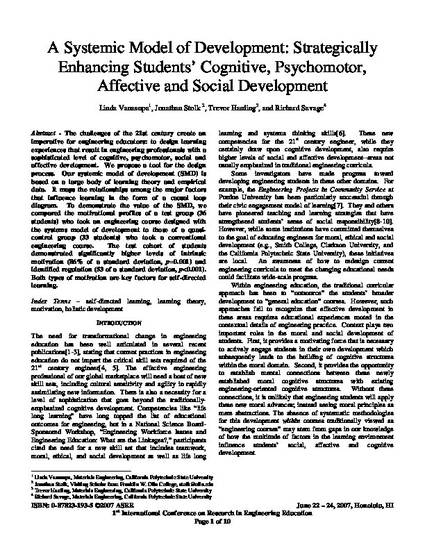
The challenges of the 21st century create an imperative for engineering educators: to design learning experiences that result in engineering professionals with a sophisticated level of cognitive, psychomotor, social and affective development. We propose a tool for the design process. Our systemic model of development (SMD) is based on a large body of learning theory and empirical data. It maps the relationships among the major factors that influence learning in the form of a causal loop diagram. To demonstrate the value of the SMD, we compared the motivational profiles of a test group (36 students) who took an engineering course designed with the systems model of development to those of a quasicontrol group (33 students) who took a conventional engineering course. The test cohort of students demonstrated significantly higher levels of intrinsic motivation (86% of a standard deviation, p=0.001) and identified regulation (53 of a standard deviation, p
Available at: http://works.bepress.com/lvanasup/18/
